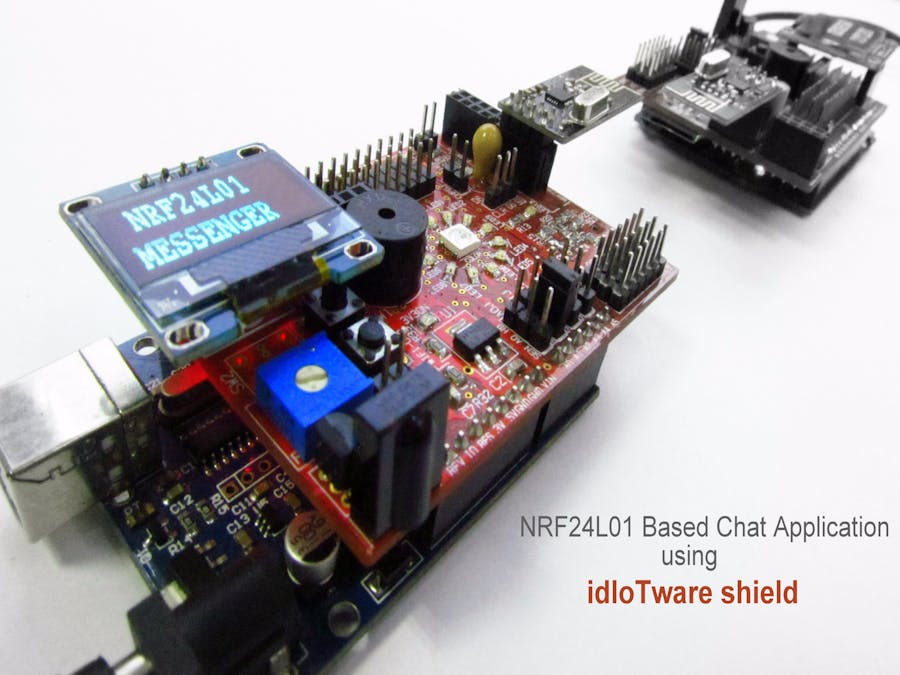No internet no worries we have some crazy idea to make a chat room that can work till few miles with the external antenna. There are many places where you can not get network. What we have done is create the large range chat room for 6 peoples.All this is possible with a arduino ,idIoTware shield and the Wireless module nRF24L01.
This Arduino Chat Room uses nRF24L01 to set up a low cost Chat Room in your local area.You can extend the chat coverage by using nrf24l01 radio module with an external antenna.
WorkingIn this example we are using NRF24L01 radio module and Arduino to communicate to the other Arduino and NRF24L01 radio module using the serial monitor.
Here we are creating local mesh between two radio modules (NRF24L01).
The two sets of Arduino and nRF24L01 are connected together to establish a wireless Serial communication link so that they could talk to each other.
The nRF24L01 are half duplex transceiver modules, hence they can send and receive data.
The data is sent from the user using Arduino Serial monitor, by typing on his keyboard,and this data can be received and displayed on the receivers oled display, which is on the idiotware shield, and vice- a versa.
This project is limited to just adding two members to the Chat room, But the nRF24L01 has capability to handle 6 connections, and so there could be a maximum of 6 members in our chat room, each talking or chatting with each other.
This chat room coverage could be upto 100 meters depending upon the nRF24L01 Modules range.
Configuring idIoTware ShieldUpload the code from Arduino IDE and start chatting with friends in neighbourhood. Use the Serial monitor of Arduino IDE to send message.
No more connecting things on breadboard and messy wiring. With the idIoTware shield the sky's the limit.




_ztBMuBhMHo.jpg?auto=compress%2Cformat&w=48&h=48&fit=fill&bg=ffffff)







Comments